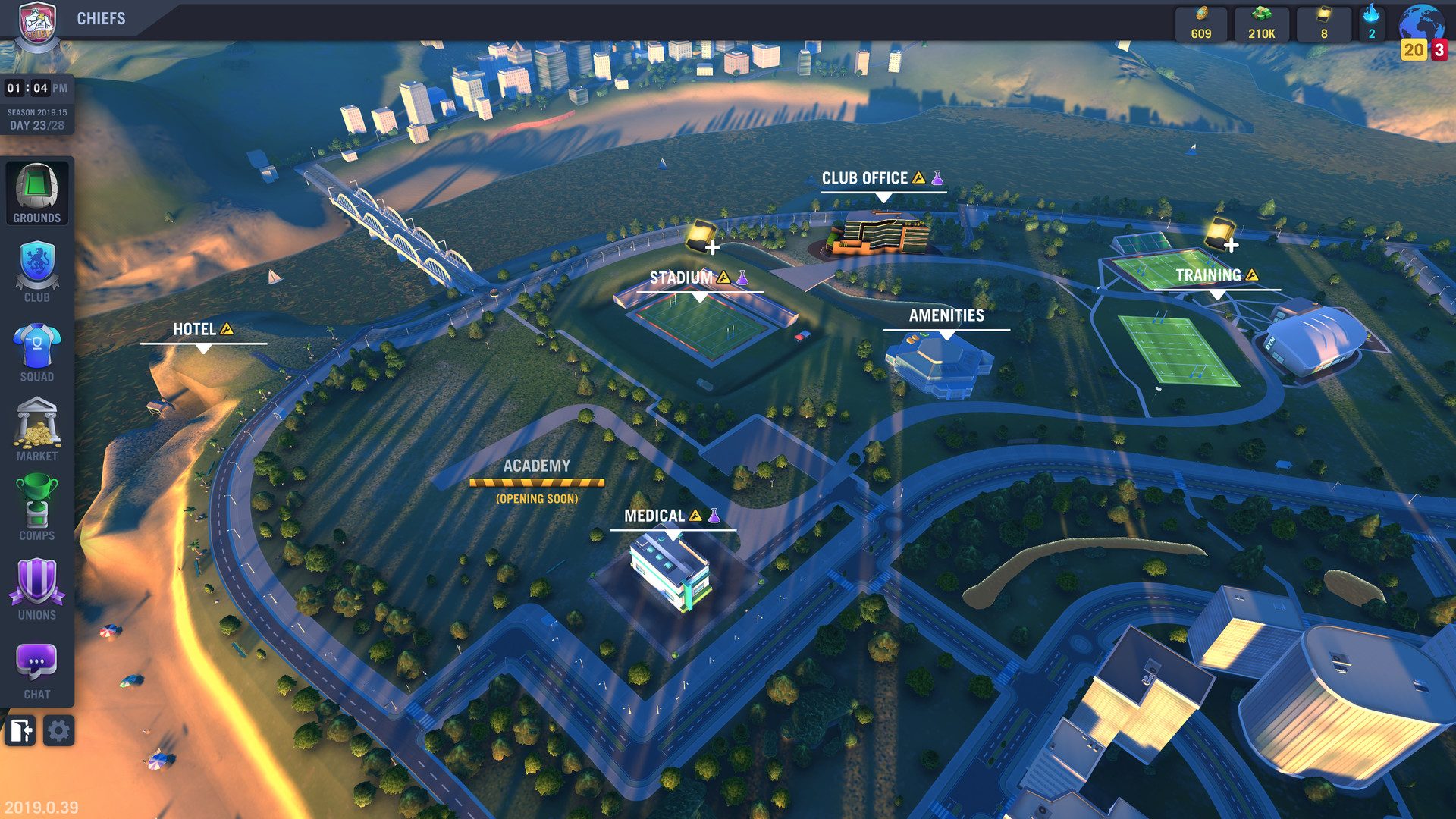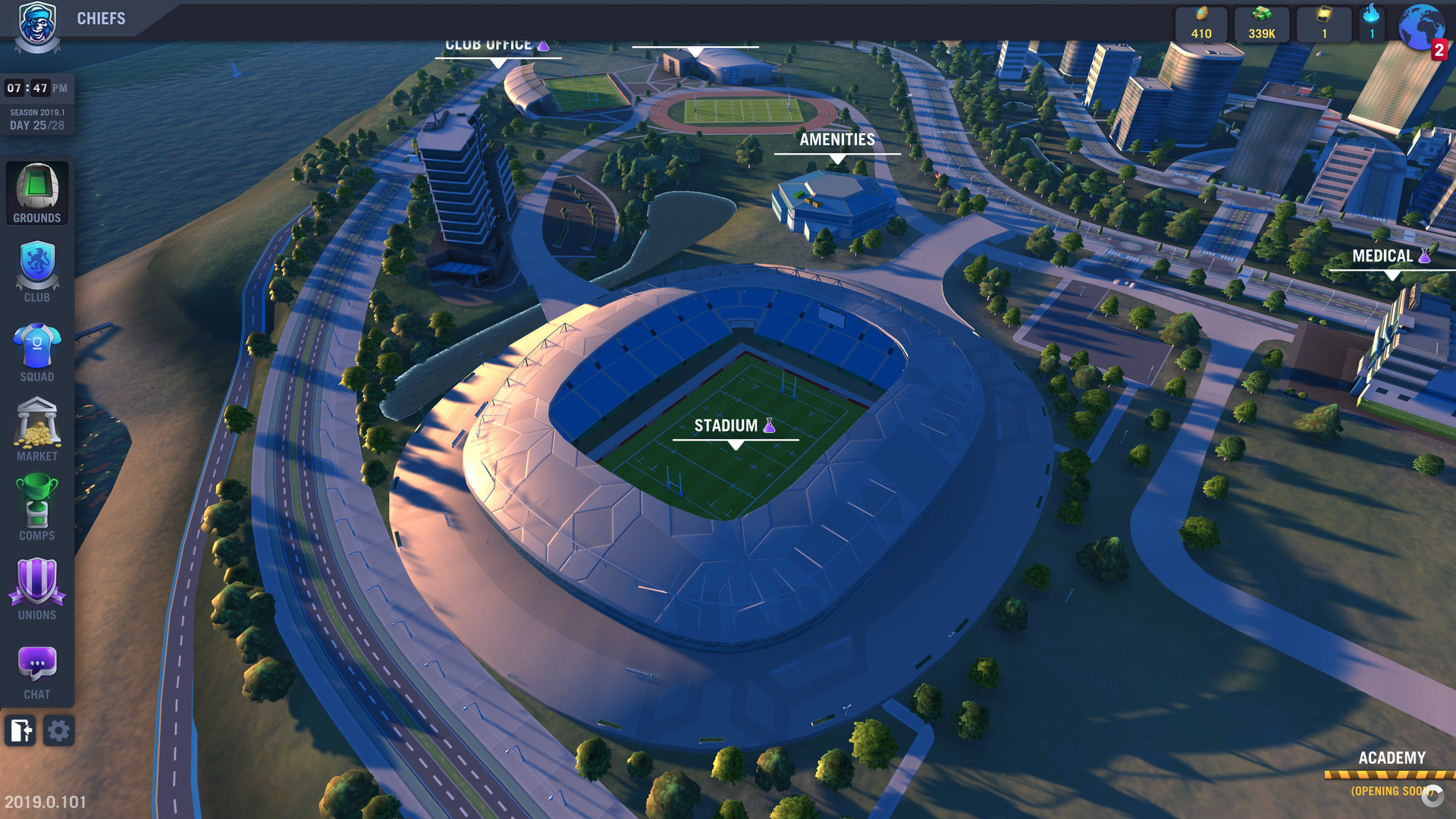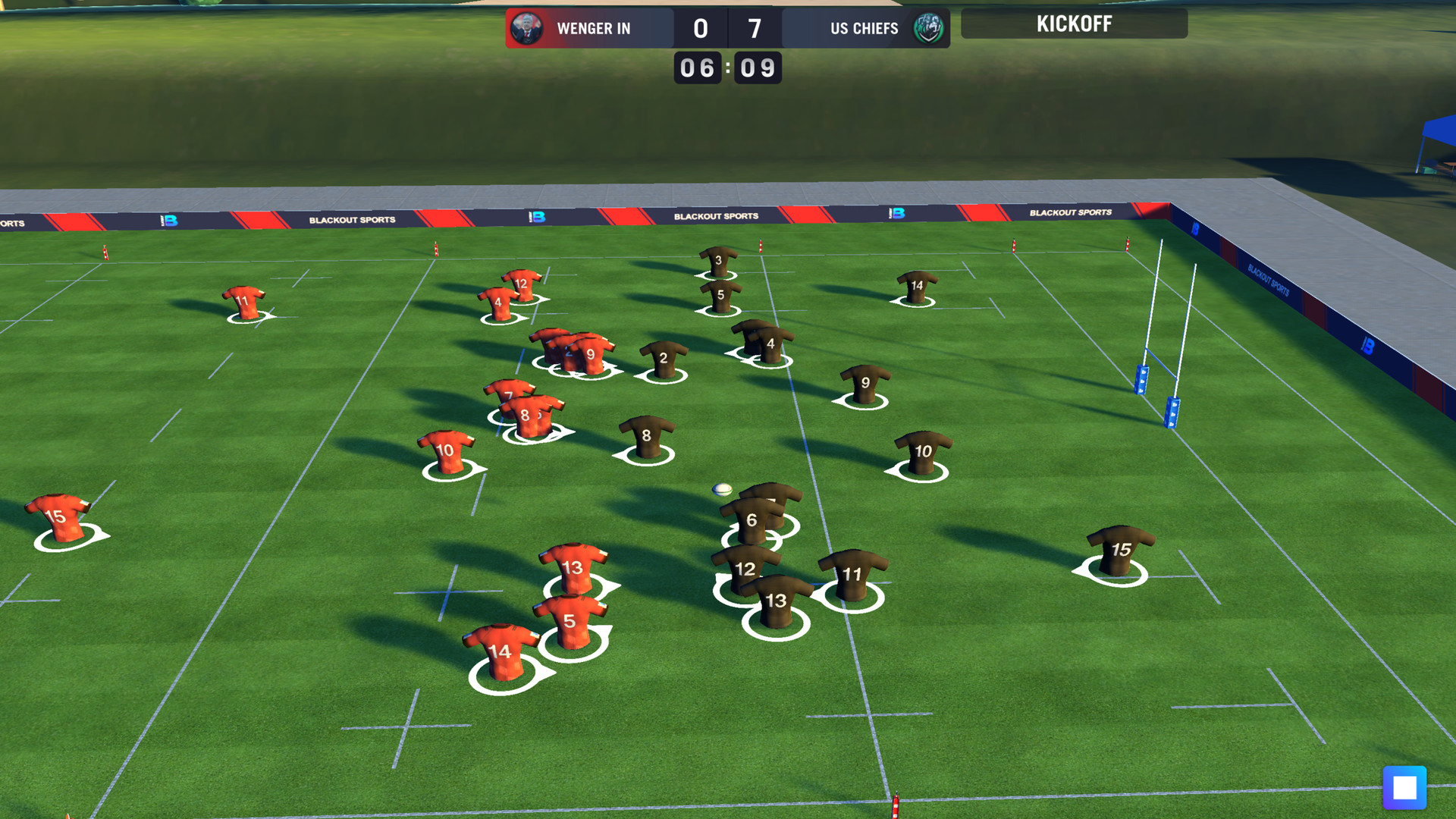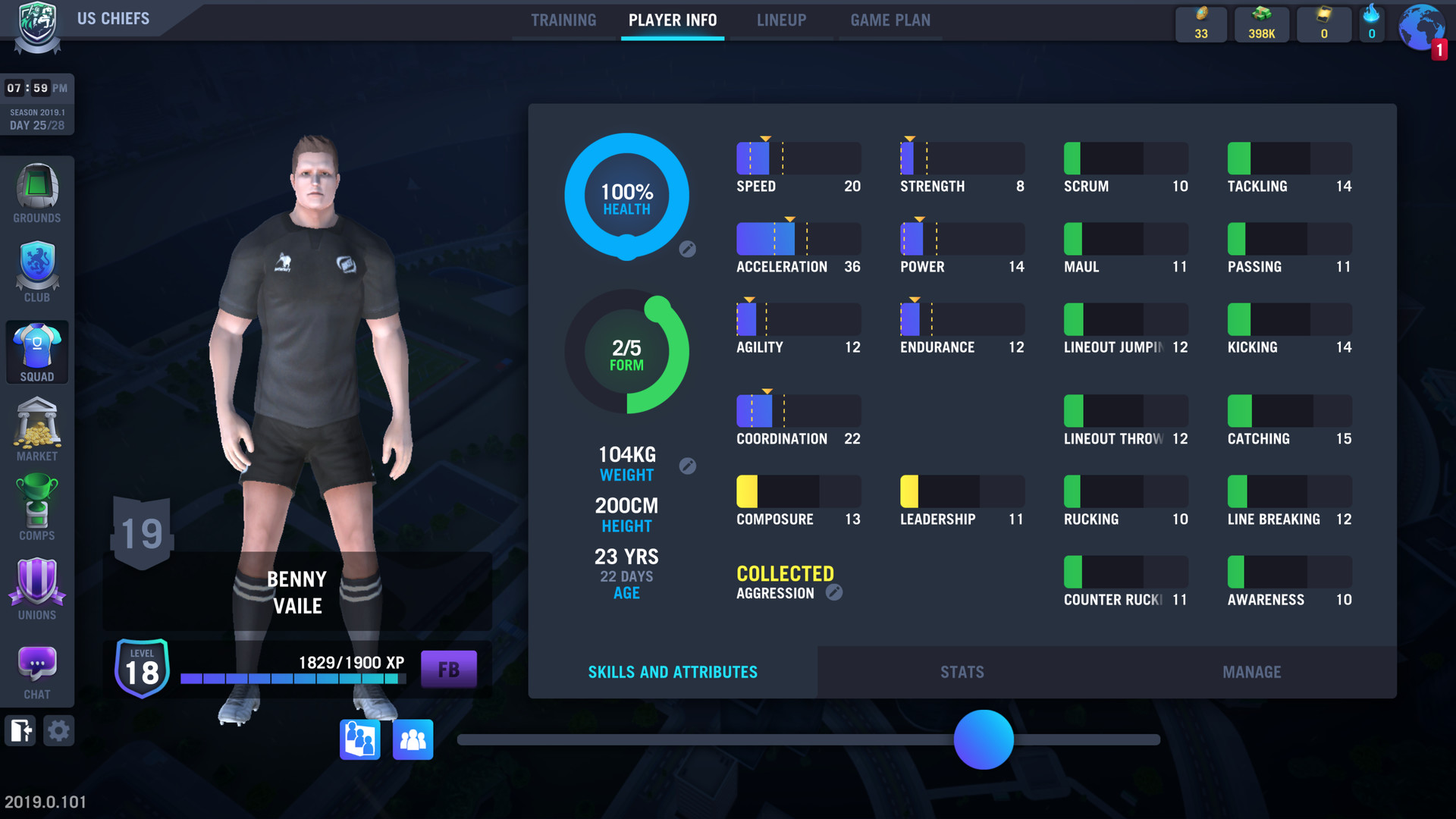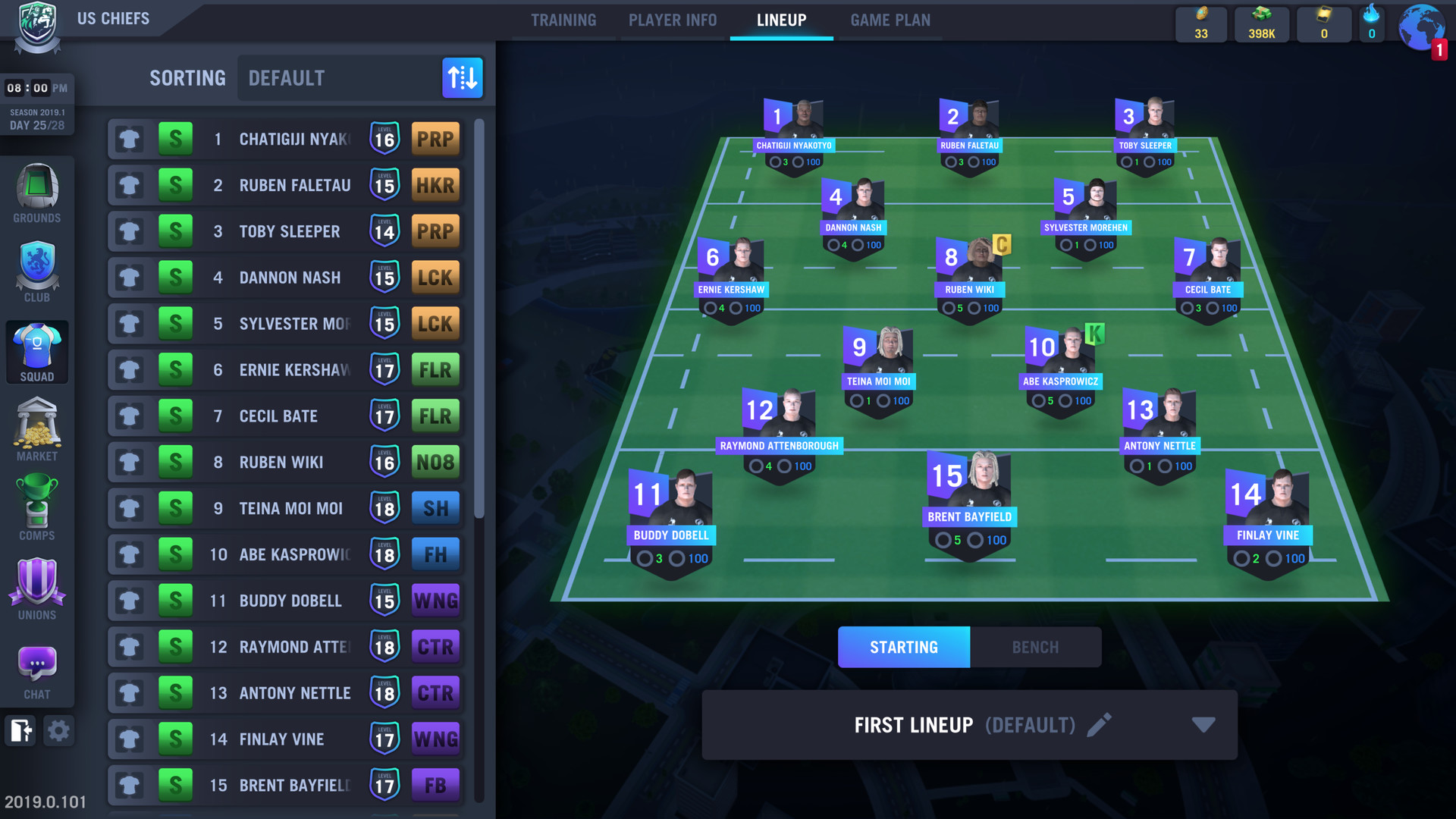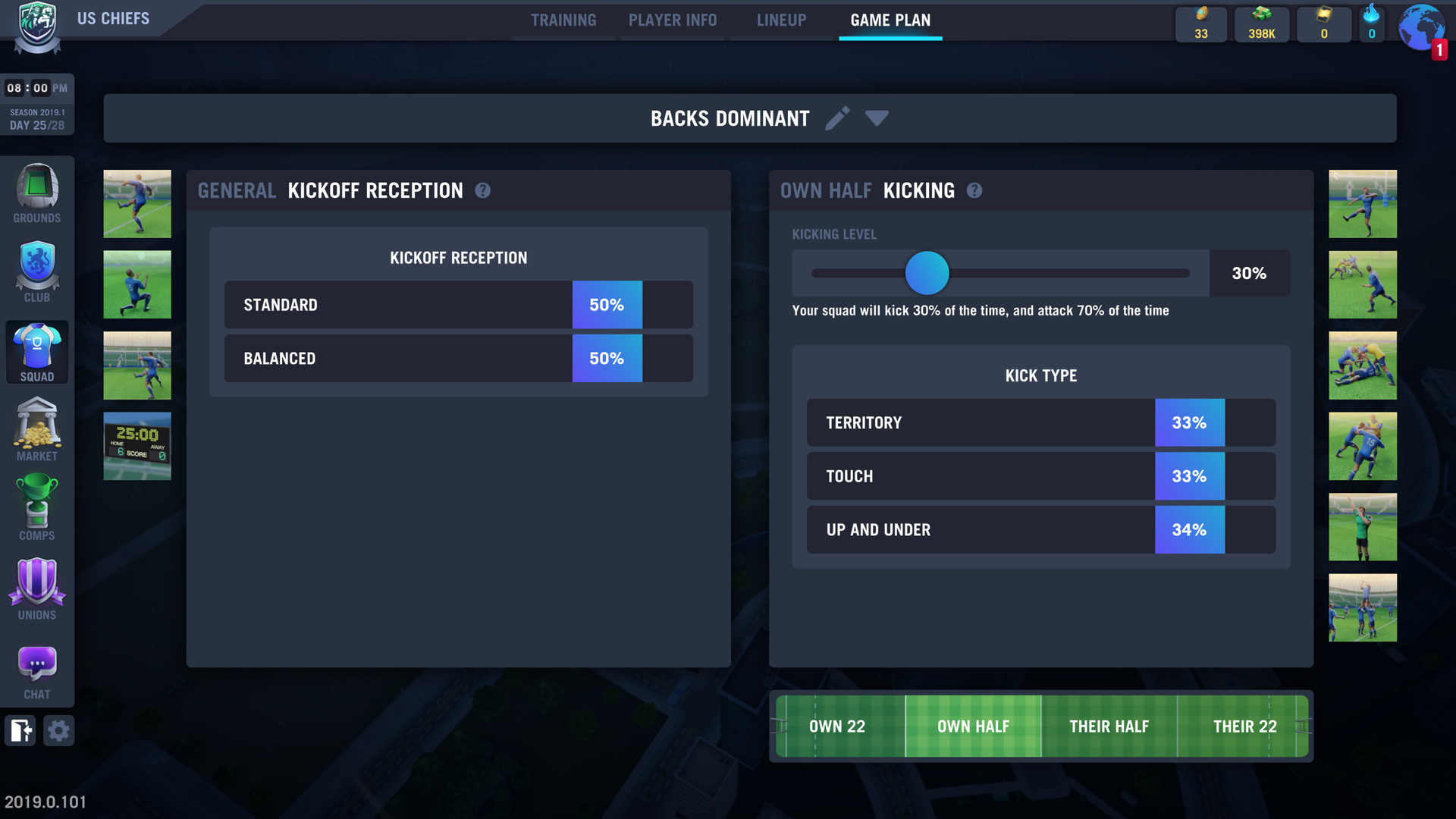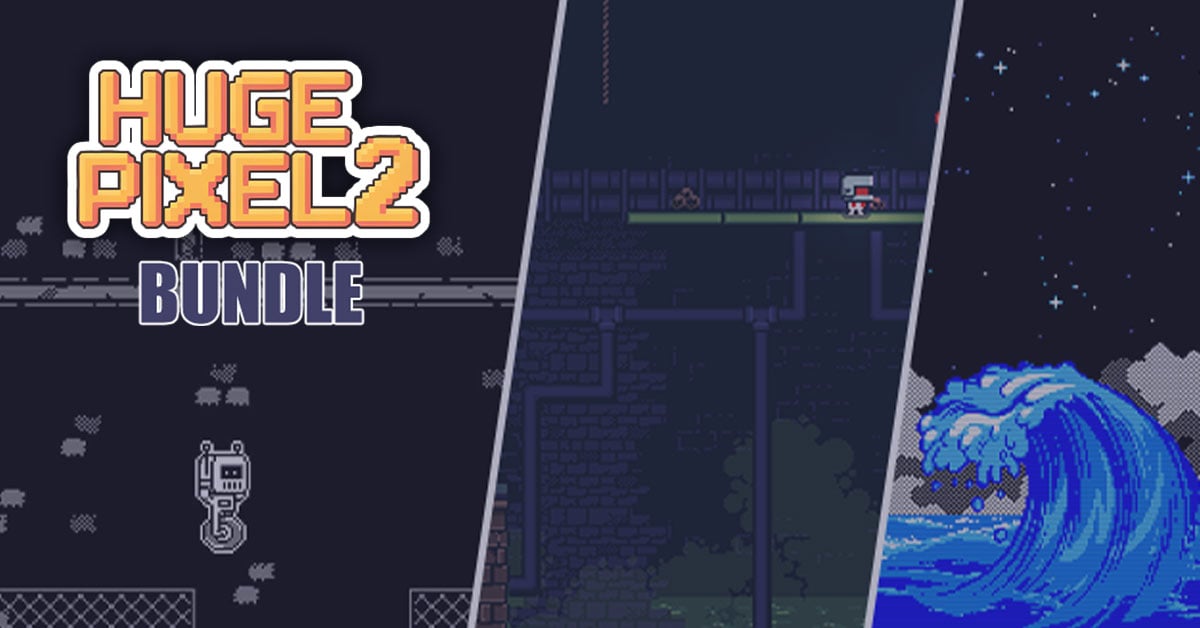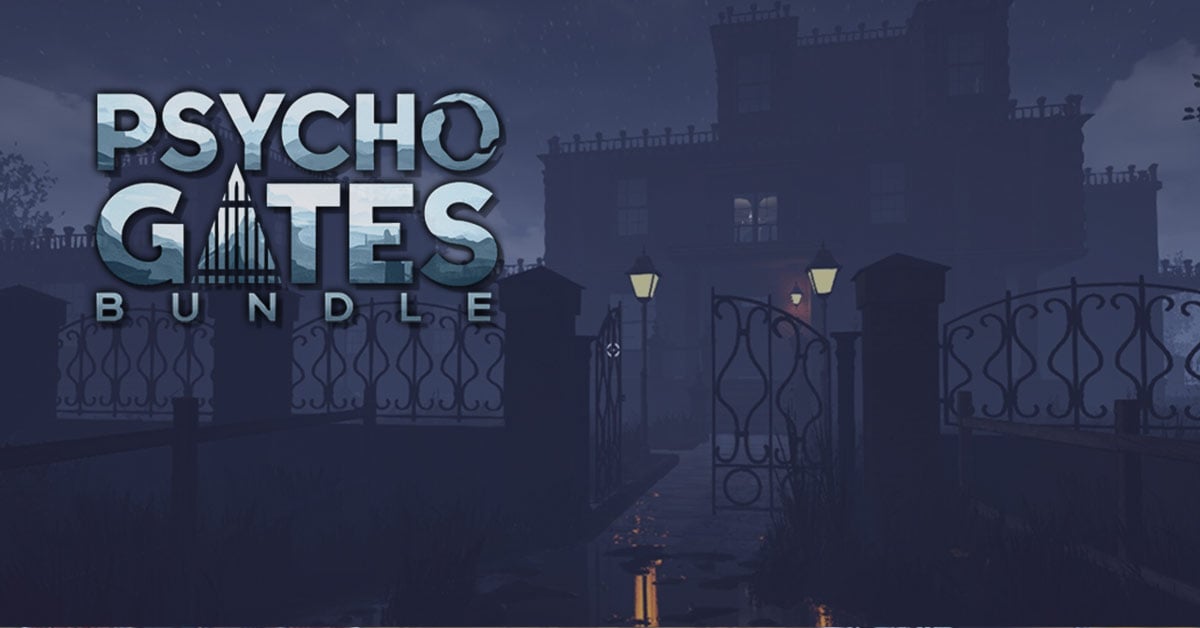
-
Grounds Management
(Building upgrades, Tech trees, Amenities, Finances) -
Cards
Description (Energy, Acquiring cards, Spending cards, Synergy) -
Squad
Description (Levels, XP, Attributes, Skills, Contracts) -
Injuries
Description (Injuries, Medical building, Treatment room) -
Training
Description (Physical, Technical, Regimes, Sessions, Reports) -
Lineups and Gameplans
(Lineups, Gameplans) -
Competitions
(League, Ladder, Cup, Friendlies) -
Market
(Selling, Selling to agency, Buying) -
Academy (Coming Soon)
(Selling, Selling to agency, Buying)

A common staple of the Free to Play (F2P) genre are in-game purchases and Microtransactions. This is a business model where companies provide a free game or service and charge in-game purchases to make a profit. By consequence, its an extremely common staple for these games to incorporate Pay-To-Win strategies, presenting users with microtransactions to gain an advantage over a large proportion of plays. Unfortunately, its become so commonplace. So, at Blackout Games we wanted to make sure that free playing and paying users were on the same playing field, and were able to compete fairly.
Its this reason that weve created and fine-tuned the Pay-For-Variety (PFV) Business Model. A model that ensures all users have a premium and high-quality experience with Blackout Rugby, while also guaranteeing that we can pay the bills, and continue to work on the game we love. Pay-For-Variety may not be the most profitable approach we could take, but were confident it provides a premium experience to both paying and free playing users.
So how does it work? Well, the key is in the name. Providing variety to a paying customer, without upsetting the equilibrium of game balance. It all relates to providing value to users outside of an unfair advantage. Our first objective was ensuring that in-game purchases werent at the expense of our free-playing users. But instead, providing paying-users additional benefits and features.

Tokens, our in-game currency if you will, are accessible to paying users and free-playing users respectively, through various rewards and sponsorships. They allow players to increase the variety of options they have when making the managerial decisions they have to make in the course of running their club. Even without spending money, free users are guaranteed to receive tokens regularly as a part of their regular Blackout Rugby routine. They can customize the method in which they receive tokens too, through seasonal sponsors, which again, are accessible to all users equally.
Tokens are primarily used for customization and additional features, including more cards, another club, or joining a Union, just to name a few. Its this method that we provide a breadth of content, without sacrificing a fair and balanced game.
Because of Blackout Rugbys large degree of depth and customization, any user can still become a master of the games systems and compete at the top level without spending a cent. Since Tokens arent an exclusive currency (and all players receive regular Token drops), free playing managers can still spend tokens in similar ways to paying users, though will have to be more circumspect with how they spend them, as they will be more scarce. As an example, both premium and free playing managers can buy additional decks of cards to train their players.
Though through buying them the free playing manager may not have access to other features that require tokens as a result, such as building a medical deck, developing club buildings, the ability to auto-bid in the market, and so on. On the flip side, however, users who purchase additional cards dont automatically benefit from a better team, but rather more variety in strategy and options at their disposal. So the 'pay-for-variety model' gives paying managers a greater range of options when shaping their team and players but does not provide additional capabilities that the free playing user does not have access to. There is no buying of advantages that make the premium club a more powerful club than a free-paying club, just spending tokens allows a manager a wider variety of choices at any one moment in how they want to shape their club.
As an additional layer of ensuring the equality of the playing-field, card playing is regulated through slots and club energy. Lets begin with Slots.

Card Slots put a positive limitation into the mix, as training, matches and the like can only benefit from a small number of cards. First with one slot, and then up to three as a clubs technology evolves. So, while a paying user might have more options at their disposal for an upcoming fixture, theyre still subject to the same limits as all other managers. For example, a manager might want to focus for a while on boosting the kicking training their backs are receiving rather than focusing on other skills, or perhaps they want to direct the tactical preparation for a match on scrum power rather than on some other tactical aspect.
A manager who buys decks has a wider variety of cards they can play, and so more choices over how to shape their team and players, but whether a manager pays of not, they can still always play cards into the slots they own. So, they are provided with more flexibility, rather than an outright advantage. This means that matches are still built on game knowledge and skill. So, the better player will still win, whether they pay real money or not.
In addition to Card Slots, card playing is also dictated by Club Energy. Every card has a cost associated with it, and the better cards typically costing a larger amount of Club Energy. This pool of energy is replenished each day, meaning players have only so much energy to spend during the day and have to make decisions about which cards they play and where to play them, whether they spend real money or not.

This is a mechanic that cannot be purchased or upgraded using real money, only through advancing the users club. Its a system weve designed intentionally to keep the playing field fair and to ensure that free-playing users are never at an unfair disadvantage.
This provides an insight into the Pay-For-Variety model, but theres far more to it in-game, that youll be able to experience yourself. The easy route, in all this, would be to introduce premium systems that provide an in-game advantage, at the detriment of the large majority of users. But thats not our style, nor is sacrificing the experience of many for the sake of a small few. In an industry that is so heavily monetized in so many ways, our PFV model is something were proud to stand by, as we believe every user should have a premium experience, not just those who pay real money. At the same time, we want to ensure that those who choose to support us are rightfully rewarded, by providing great value and variety.
Its a system were continuing to tweak and improve as the game grows, and is a discussion were interested in having with our community. So, if you have any questions for our team, let us know through a comment here, on steam, or through our Discord server. Were happy to have an open dialogue, to produce the best version of Blackout Rugby possible.
Minimum Setup
- OS: 64 bit
- Processor: Multi coreMemory: 4 GB RAM
- Memory: 4 GB RAM
- Graphics: OpenGL 3.0+Network: Broadband Internet connection
- Storage: 2 GB available spaceAdditional Notes: Min screen size: 1280x720
[ 6377 ]
[ 5865 ]
[ 751 ]
[ 2194 ]

